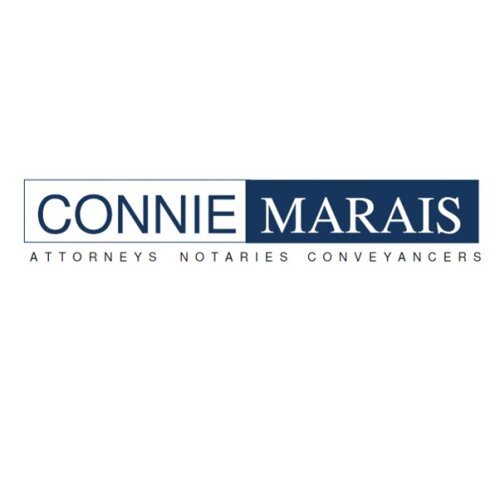Best Collaborative Law Lawyers in Richards Bay
Share your needs with us, get contacted by law firms.
Free. Takes 2 min.
Free Guide to Hiring a Family Lawyer
List of the best lawyers in Richards Bay, South Africa
About Collaborative Law in Richards Bay, South Africa
Collaborative Law is an alternative dispute resolution method focused on resolving legal issues, especially family disputes, through structured negotiations and cooperation. Instead of going to court, all parties voluntarily commit to work together with their respective legal representatives to reach a mutually acceptable agreement. Richards Bay, like other parts of South Africa, follows the principles of Collaborative Law, which is increasingly being recognized for family law matters such as divorce, child custody, and property division. The process is designed to minimize conflict, save time and expense, and avoid the adversarial nature of litigation.
Why You May Need a Lawyer
People in Richards Bay may require legal assistance in Collaborative Law for several reasons:
- Divorce or separation where both parties seek a respectful, private, and amicable resolution
- Disputes regarding child custody, access, and maintenance agreements
- Division of property and assets following the dissolution of a marriage or partnership
- Negotiations involving financial support or spousal maintenance
- Drafting and formalizing settlement agreements that are legally binding
- Minimizing emotional toll and preserving relationships, especially where children are involved
- Reaching consensus on complex family or business disputes
Local Laws Overview
In Richards Bay, Collaborative Law operates within the framework of South African law. The process is not governed by a specific statute but is implemented under the broader principles of South African family and civil law. Key aspects include:
- Voluntary Participation: All parties must agree to the collaborative process and sign a participation agreement.
- Legal Representation: Each party retains their own lawyer, trained in collaborative methods.
- No Litigation Threat: Lawyers involved agree not to represent the parties in court should collaboration fail; if the process breaks down, new lawyers need to be appointed for any court proceedings.
- Confidentiality: All discussions, communications, and negotiations during the process are confidential and cannot be used in court later on.
- Focus on Interests: Emphasis is placed on the parties’ underlying needs and interests rather than just legal entitlements.
While Richards Bay does not have unique local Collaborative Law statutes, participants must adhere to national legislation such as the Children’s Act 38 of 2005, Divorce Act 70 of 1979, and the Recognition of Customary Marriages Act 120 of 1998, as applicable.
Frequently Asked Questions
What is Collaborative Law?
Collaborative Law is a dispute resolution process where parties, with their specially trained lawyers, work together outside the court system to resolve legal issues amicably.
How does Collaborative Law differ from traditional litigation?
Unlike litigation, which is adversarial and conducted in court, Collaborative Law is a voluntary, private process aimed at reaching agreement through negotiation and cooperation.
What types of cases are suitable for Collaborative Law?
Collaborative Law is most commonly used in family law matters such as divorce, child custody, maintenance, and property settlements but can also be applied in some business and civil disputes.
Do I still need a lawyer in the Collaborative Law process?
Yes, each party has their own lawyer trained in collaborative methods to provide legal advice and ensure their interests are represented.
What happens if the collaborative process fails?
If an agreement cannot be reached, the lawyers involved must withdraw, and the parties may then choose to proceed with new lawyers through court litigation.
Are the agreements reached in Collaborative Law legally binding?
Yes, once an agreement is reached, it is formalized into a legal contract or made an order of the court where necessary.
How long does the Collaborative Law process take?
The timeline varies by case complexity, but it is generally faster than court processes because it allows the parties to set their own pace.
Is Collaborative Law confidential?
Yes, all negotiations and communications during the process are private and confidential.
Can Collaborative Law be used if there is a power imbalance or history of domestic abuse?
Cases involving significant power imbalances or abuse may not be suitable for Collaborative Law. It is essential to address safety concerns first and consider alternatives.
How do I find a Collaborative Law lawyer in Richards Bay?
Look for lawyers who are members of collaborative law associations or who advertise collaborative law services, and ask about their training and experience in this area.
Additional Resources
If you need more information or support, these resources can assist:
- South African Association of Collaborative Professionals (SAACP): Offers directories, training, and information about collaborative law in South Africa.
- Law Society of South Africa (LSSA): Maintains a list of qualified legal practitioners in Richards Bay and elsewhere.
- Local Family Law Firms: Many offer collaborative law services - check their credentials and collaborative law offerings.
- South African Legal Aid: Provides legal assistance to those who meet means criteria, including family law matters.
- Office of the Family Advocate: Can provide guidance in cases involving children’s interests.
Next Steps
If you are considering Collaborative Law in Richards Bay, start by assessing your situation and discussing the process with the other party if possible. Seek out a lawyer who is trained in Collaborative Law - this is essential, as specific skills and a commitment to the collaborative process are required. Gather relevant documents and information, and be prepared for open dialogue and negotiation.
Arrange an initial meeting with your chosen lawyer to discuss your goals and concerns. Your lawyer will explain the process, the expected costs, and how long it might take. If both parties agree, lawyers will help you sign a participation agreement and set up your first collaborative meeting.
Remember, the aim of Collaborative Law is to help you resolve disputes respectfully and constructively, with the guidance of legal professionals, and without the stress and cost of going to court. If you feel this approach suits your circumstances, seeking legal advice from a collaborative professional is a positive next step.
Lawzana helps you find the best lawyers and law firms in Richards Bay through a curated and pre-screened list of qualified legal professionals. Our platform offers rankings and detailed profiles of attorneys and law firms, allowing you to compare based on practice areas, including Collaborative Law, experience, and client feedback.
Each profile includes a description of the firm's areas of practice, client reviews, team members and partners, year of establishment, spoken languages, office locations, contact information, social media presence, and any published articles or resources. Most firms on our platform speak English and are experienced in both local and international legal matters.
Get a quote from top-rated law firms in Richards Bay, South Africa — quickly, securely, and without unnecessary hassle.
Disclaimer:
The information provided on this page is for general informational purposes only and does not constitute legal advice. While we strive to ensure the accuracy and relevance of the content, legal information may change over time, and interpretations of the law can vary. You should always consult with a qualified legal professional for advice specific to your situation.
We disclaim all liability for actions taken or not taken based on the content of this page. If you believe any information is incorrect or outdated, please contact us, and we will review and update it where appropriate.









